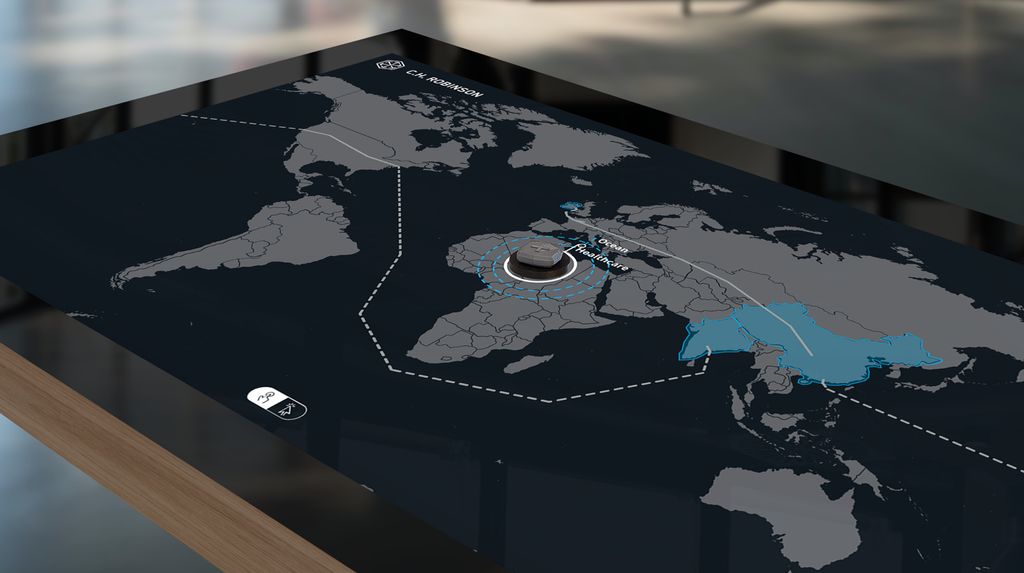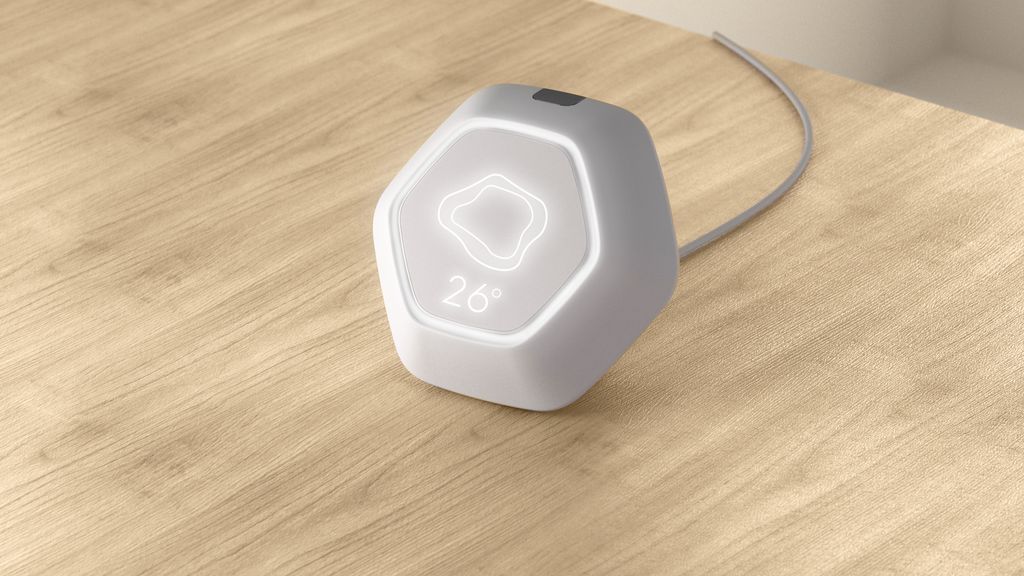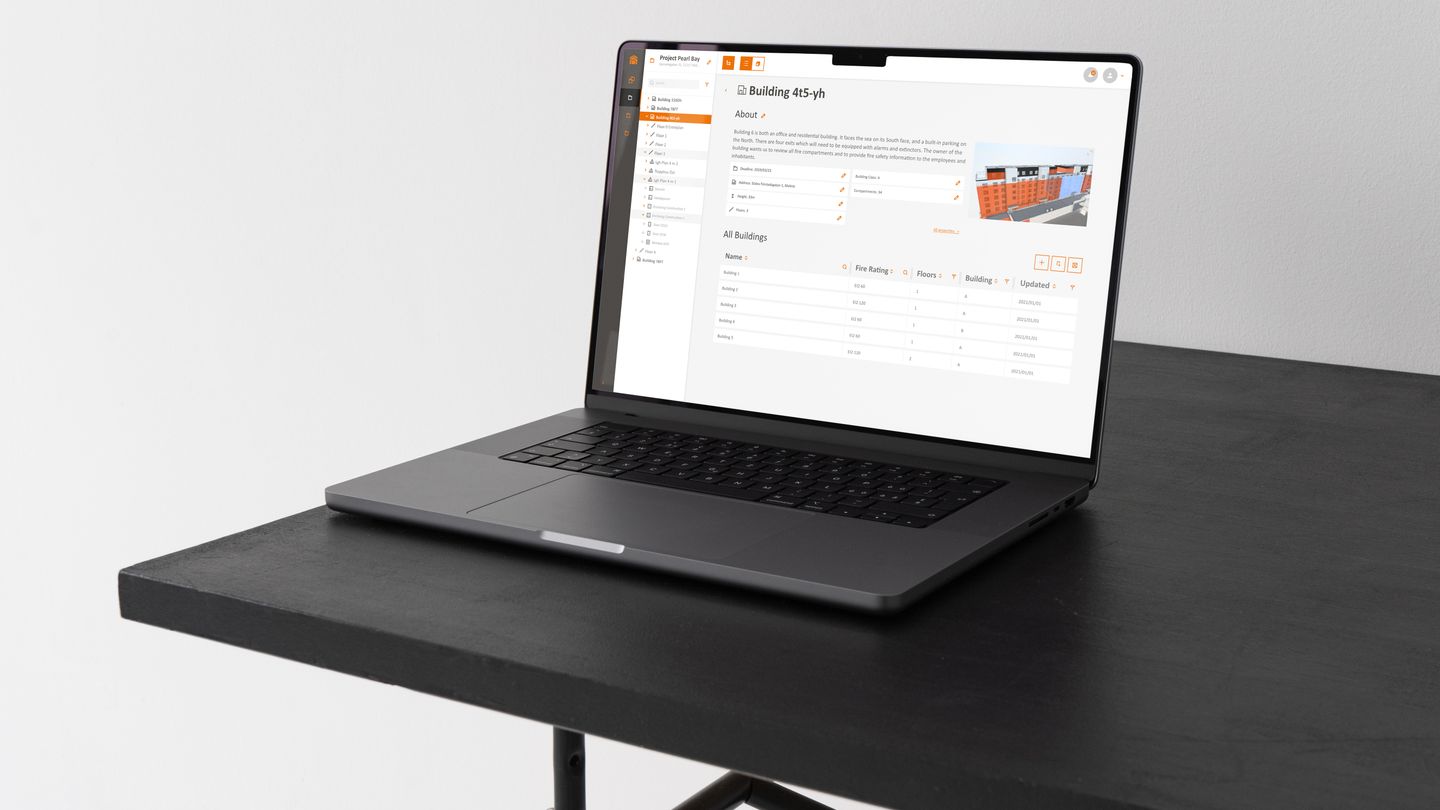
Overview
Briab is a group of technical consultants who work with construction, inspection, and design of everything from fire safety to hazardous operations control. To make risk management more efficient, they wanted to create a digital tool that could optimize the workflows of everyone involved in the process, from architects to construction managers.
We started with a research phase to understand the core of Briab's offering and who their primary clients are. After a series of workshops and contextual user interviews, we synthesized insights regarding business goals, users' daily risk management processes and pinpointed areas of improvement that informed features and user flows of Briab's product.
Designing for Data-Heavy Workflows
One of the main challenges was presenting large amounts of data and giving users control over thousands of dynamic properties in a way that is easy to understand and navigate. With insights gathered from user research and by implementing known UX paradigms, we set to reduce cognitive load of the user, build a rigorous information architecture and clearly defined visual hierarchy in the navigation, content and search features.
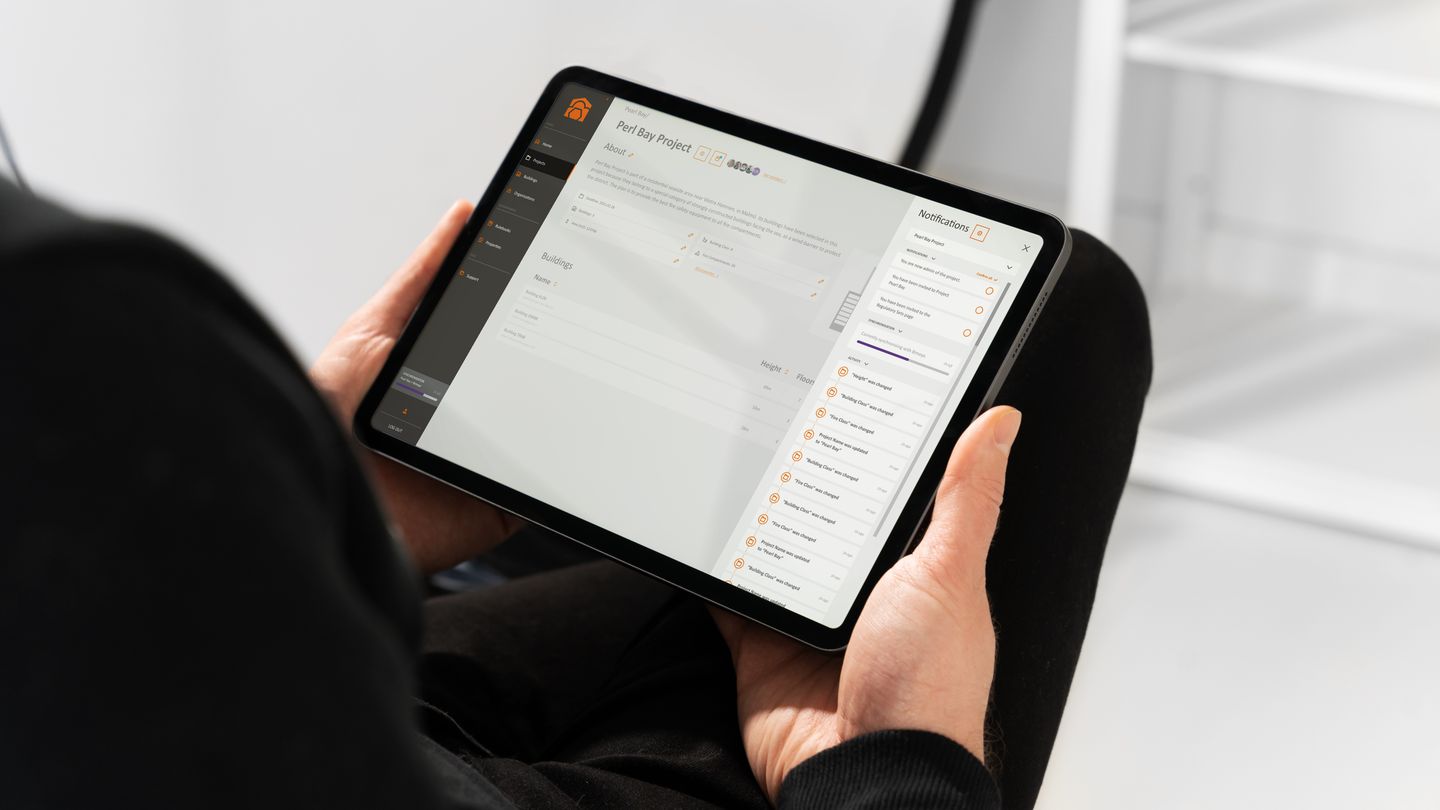
3D Viewer
To help users process the vast amount of data that makes up a building, we designed and developed the 3D viewer. It allows users to upload and connect a 3D model depicting the construction project into the app and use it to navigate, visualize and create cross-sections of the construction in real time.
By making it the main focal point to view projects and buildings within the BIMfire application, we replaced a very tabular and data-heavy UI with something that is more intuitive, less prone to errors, and frankly way more fun to use.
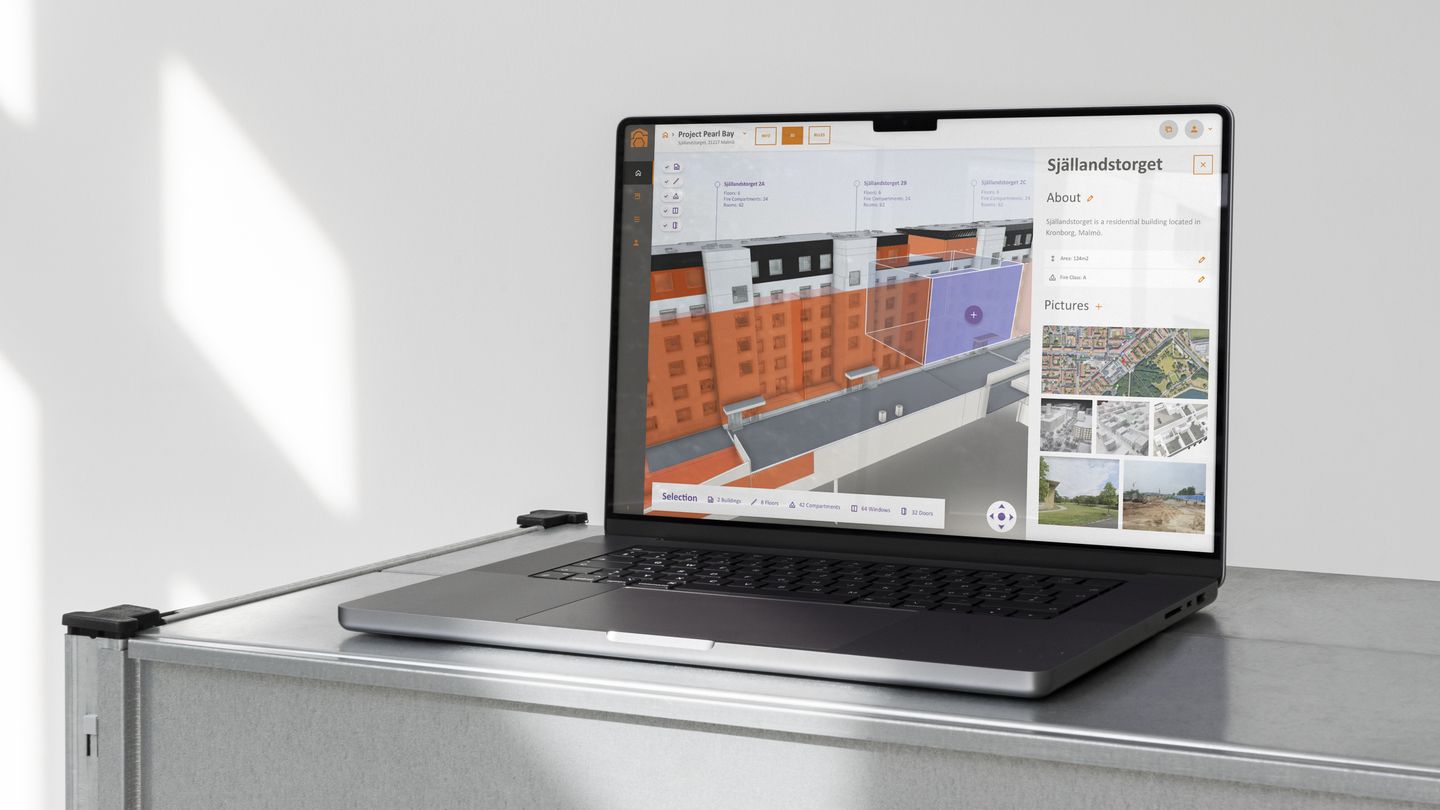
Building a Design System
The system needed to support a completely data-driven back-end, where data points and relations are almost completely dynamic. We aimed at a design system that could not only visualize troves of data in a clear and consistent manner, but also support editing of almost all properties, with versioning, approval and dynamic validation of each property.
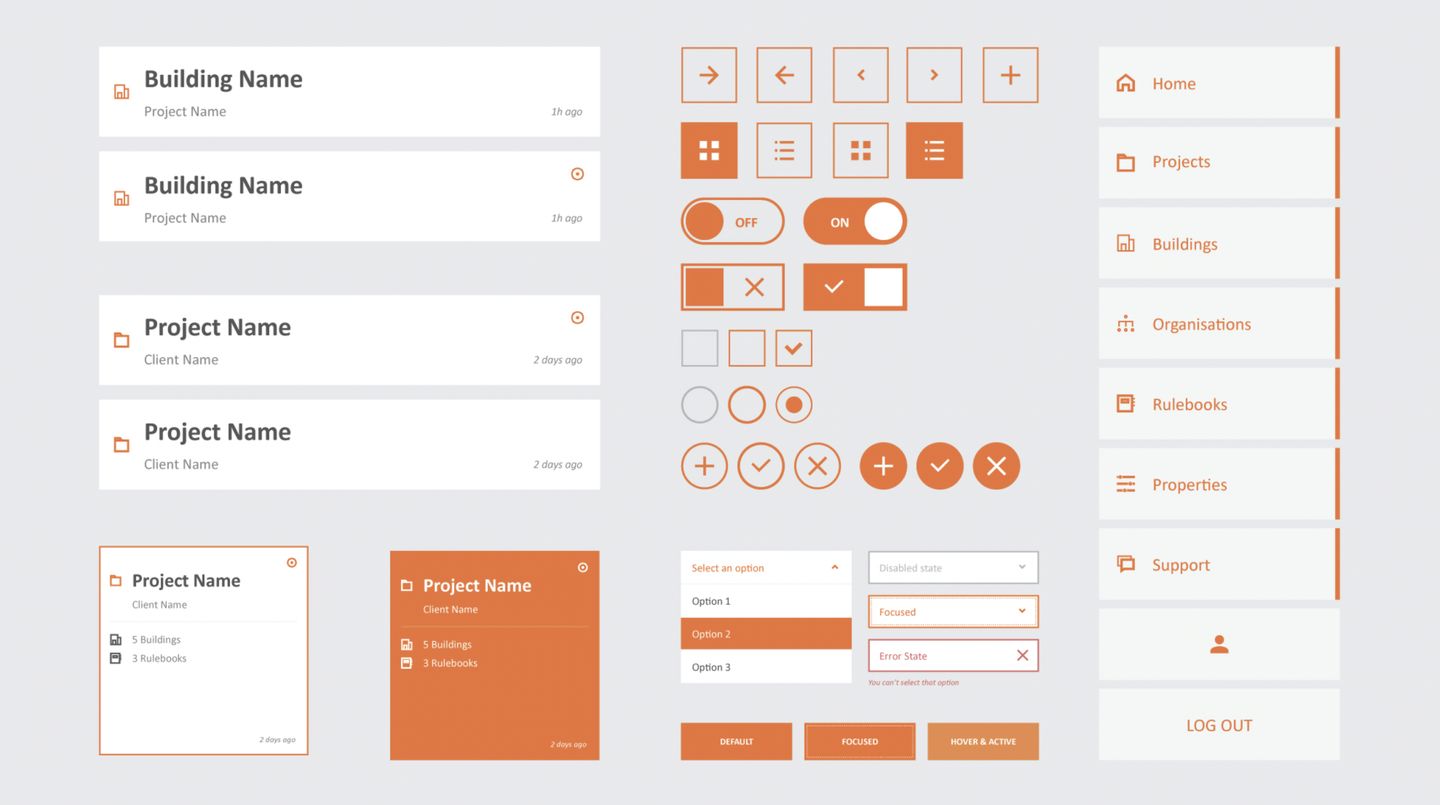
When doing research about digital workflows, we produced insights that had an impact beyond the digital tool and prompted other investigations and optimizations on internal processes and workflows.
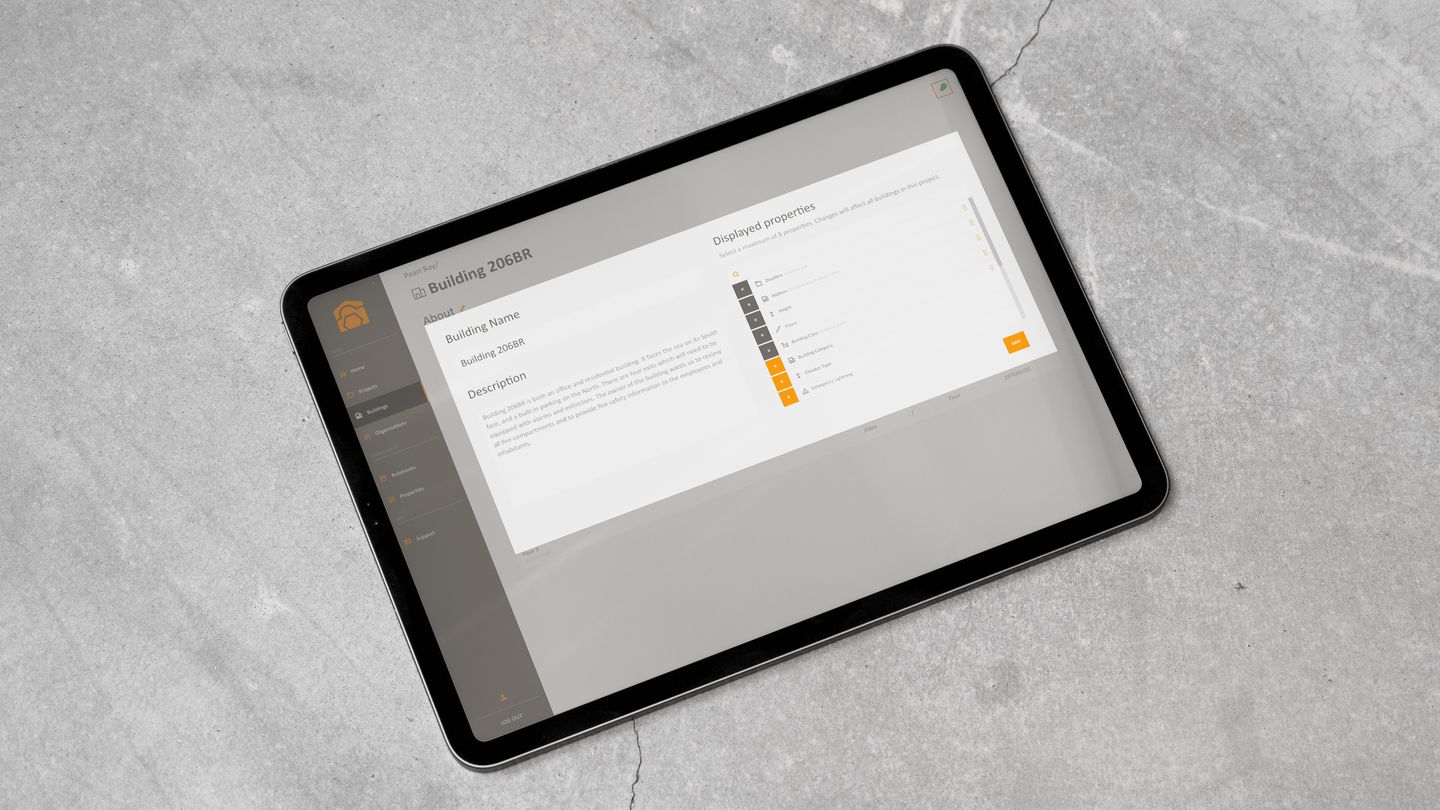
Outcomes
As a result of this engagement, Block Zero not only provided a grand UX system, complete with guidelines and prototypes, to further flexible growth and future extensions of the BIMfire suite. We also provided education, technical expertise, and support to the development team, tailoring tools and practices to ensure high quality and fast delivery. Not only did we put our designs to the test, but we also ensured Briab had a solid UX and technical foundation to continue with.
